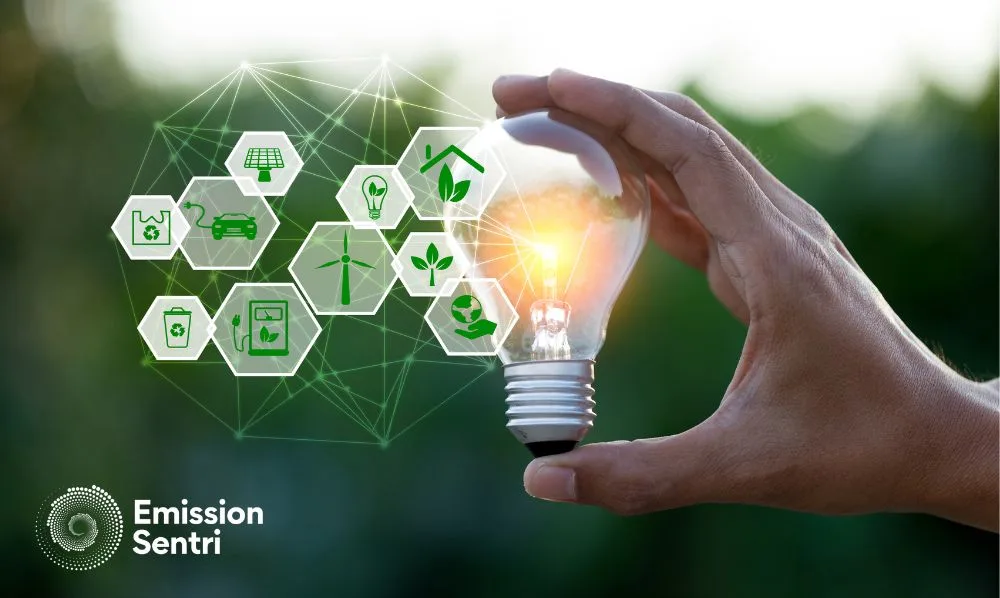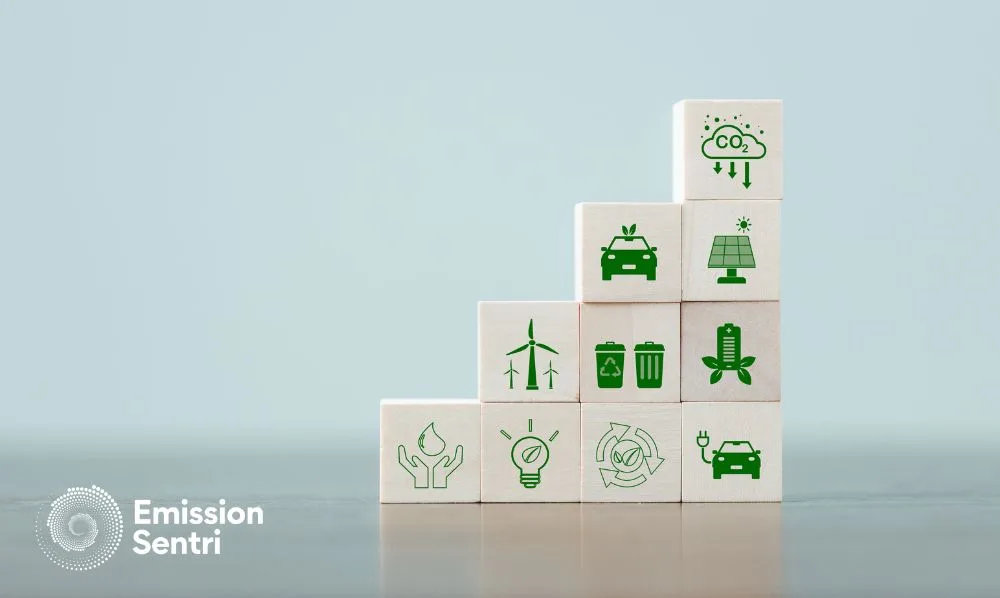Blog
3 Essential Sustainability Strategies for Businesses
Last updated: May, 2023

Aligning profit goals with global well-being isn’t just a choice—it’s a must.
Prioritizing the reduction of carbon emissions and the preservation of natural resources is essential when crafting business plans. With environmental considerations taking center stage in corporate priorities, cultivating a sustainable business strategy not only aligns with ethics but is also a savvy move for ensuring enduring success.
In 2024, over 50,000 companies will be facing new regulatory disclosure requirements on their operations’ impact on nature, due to the EU’s Corporate Sustainability Reporting Directive coming into force.
This begs the question: How can businesses grow while contributing positively to the environment?
The answer lies in sustainability strategies for businesses that align financial goals with ecological mindfulness.
Let’s dive into how your business can embrace sustainability, ensuring the planet’s health and profitability.
What is a Sustainable Business Strategy?
A sustainable business strategy aims to balance the needs of an organization (making a profit) with its impact on the environment.
It focuses on creating mindful practices and policies, reducing carbon emissions, and protecting natural resources to ensure a sustainable future for all.
To see success, you need to prioritize building a sustainable business culture and a culture of sustainability.
Why You Need Sustainability Strategies in Your Business
ESG (environmental, social, and governance) discussions are shifting from the sidelines to the center stage of business, becoming the new standard.
- 30% of Europe’s biggest public companies are pegging to reach net zero by 2050.
- Over 4,000 companies have set science-based carbon targets.
- 65% of the annual revenue of the world’s largest 2000 companies is covered by a net zero target.
This isn’t just a niche trend; it’s a mainstream movement crucial for your business to stay relevant and profitable.
Yet, the advantages extend beyond environmental impact.
Sustainable strategies for business attract eco-conscious consumers, investors who want to comply with regulatory standards, and job seekers who want to work for green companies.
Summing it up, “going green” ensures the long-term health of the planet and the sustained profitability of your business.

3 Essential Sustainability Strategies for Business
To navigate the sustainability journey, you need to adopt key strategies to guide your business towards a more responsible and efficient future.
1. Energy Efficiency and Renewable Resources
Renewable energy, particularly solar and wind, is experiencing significant growth.
According to McKinsey, by 2026, the global capacity for renewable electricity is expected to increase by more than 80% from 2020 levels, reaching over 5,022 gigawatts. This surge is predominantly driven by solar and wind energy, which is projected to account for two-thirds of this growth.
By 2050, renewables are expected to generate 57% of the world’s electricity.
Investing in renewable energy sources aligns with environmental objectives and presents an opportunity for long-term cost savings and operational efficiency.
How else can you make your business more energy efficient?
- Upgrading to energy-saving appliances.
- Switching to energy-saving lighting.
- Optimizing your heating and cooling systems.
- Conducting regular energy audits.
RELATED: How to Make Your Company Carbon Neutral: A Step-By-Step Guide
2. Waste Reduction and Recycling Initiatives
It’s no secret.
We live in a world with far too much waste, and addressing this issue requires the implementation of sustainability strategies in business. One of the approaches involves minimizing waste in landfills through recycling and reduction efforts.
Landfills are bad for the environment and people, releasing excess carbon dioxide into the atmosphere.
For your business to achieve net-zero status, it is imperative to adopt strategies that focus on reducing, reusing, and recycling to prevent as many items as possible from contributing to the landfill problem.
Unlike paper, plastic, glass, and other materials, e-waste is one of the fastest-growing waste streams in the world, and it’s challenging to recycle. According to studies, it’s estimated that 40% of heavy metals found in landfills come from electronic products.
With most organizations relying on electronics in some way or form, it’s imperative to have a strategy for reducing your e-waste, especially if your team is remote.
Some strategies for e-waste include:
- Adopting a culture of designing products with durability, repairability, and recyclability in mind. An excellent example is Osprey. The company will repair any damage or defect for any reason free of charge. Forever.
- Partnering with e-waste recycling companies to ensure proper disposal and recycling of electronic devices.
- Establishing a device reuse program where functional devices you no longer need in one department are sent to another.
- Investing in green technology when purchasing new devices. While these options might be more expensive upfront, they will result in long-term cost savings and reduce your environmental impact.
RELATED: 5 Sustainability in the Workplace Ideas
3. Employee Engagement and Education
Employee engagement and education in sustainability practices are pivotal for any business striving for net zero.
Workshops, training sessions, and incentives can significantly influence employee behavior, leading to substantial reductions in greenhouse gas emissions — potentially 40-70% by 2050.
Behavioral change in organizations can accelerate emissions reduction and contribute up to 30% towards your goal. In addition, more than 76% of employees surveyed stated they would like to work for companies with a clear commitment to reducing emissions.
What is the best way to engage your employees at scale?
With a tool like Emission Sentri.
By leveraging technology to educate and involve employees, the platform helps to drive behavioral change with:
- Insights: Bring visibility to your commitment and progress across the organization. Get insights on your emissions progress delivered across your digital ecosystem.
- Awareness Training: Upskill your employees with awareness training and issue certifications.
- Generative AI Recommendations: Leverage the power of Generative AI to provide intelligent recommendations to your employees on how they can support emissions reduction.

Drive Emissions Reduction on Scale with Emission Sentri
Initiating a carbon emissions reduction journey requires collective participation.
While changing lightbulbs is a step you can take independently, the success of these sustainable business strategies hinges on your employee’s commitment.
Emission Sentri enhances your emissions reduction plan by making your goals achievable and engaging. Upskill your team, provide transparent progress, and receive intelligent recommendations to reduce your impact on the environment.